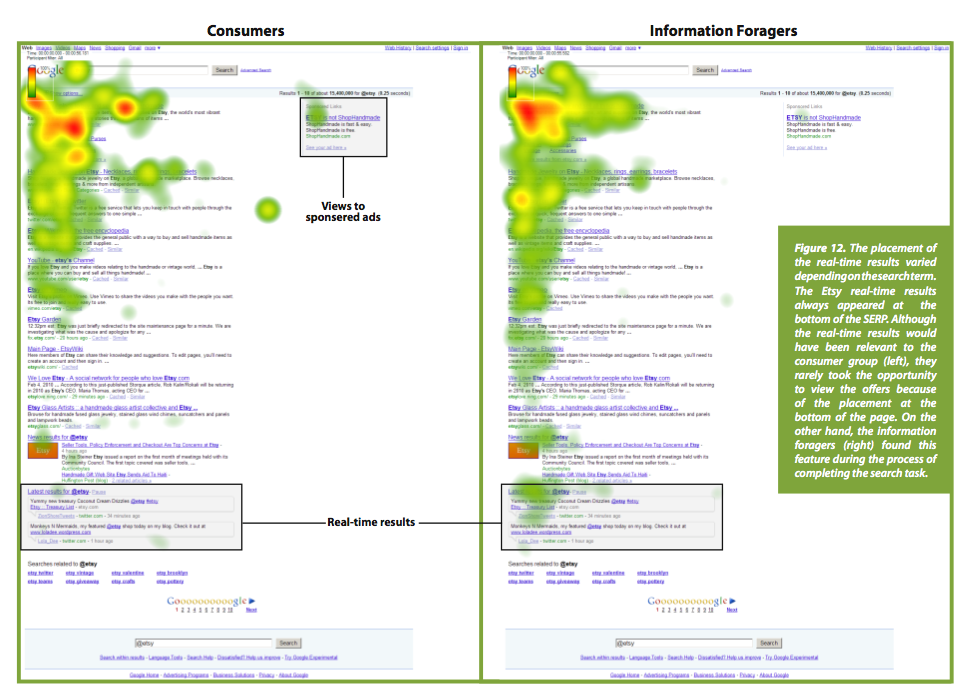An eye-tracking study recently conducted by online marketing firm OneUpWeb concluded that most searchers were not even aware of real-time results.
Real-time search results were recently introduced into search engine result pages on Google and Bing. Much discussion by the SEO and online marketing community ensued – and many were scratching their heads wondering how it would be a wise investment for the search engines and a benefit to online searchers.
OneUpWeb’s research confirms many of their concerns.
Their study involved 44 people broken into two groups – “consumers”, or those looking to buy a specific product, and “foragers”, those tasked with simply looking for information on a product. Last month’s study sought to answer the following three questions.
- Does the average Internet user recognize and understand real-time results?
- Are consumers finding and clicking on “real-time” results?
- What are consumers saying about real-time results?
According to the eye-tracking study and further interviews, the majority of participants were at least indifferent to real-time search, stating that it didn’t provide them with much. Around 73% of the consumer group didn’t even look at real-time search results…53% of the forager group did not look at real-time results.
Take a look at the eye-tracking study below to see where the searchers’ main focus of attention was. Real-time results can be seen at the bottom of the screenshot.
The U.K’s Guardian newspaper reports that real-time search agreements with Facebook, Twitter, etc. have cost Google around $15 million and Bing around $10 million. It would seem at this point that their investment isn’t proving to be worth their time.
While many techies and insiders praise real-time search results as the next big thing, the general public doesn’t seem to understand what the buzz is all about.

